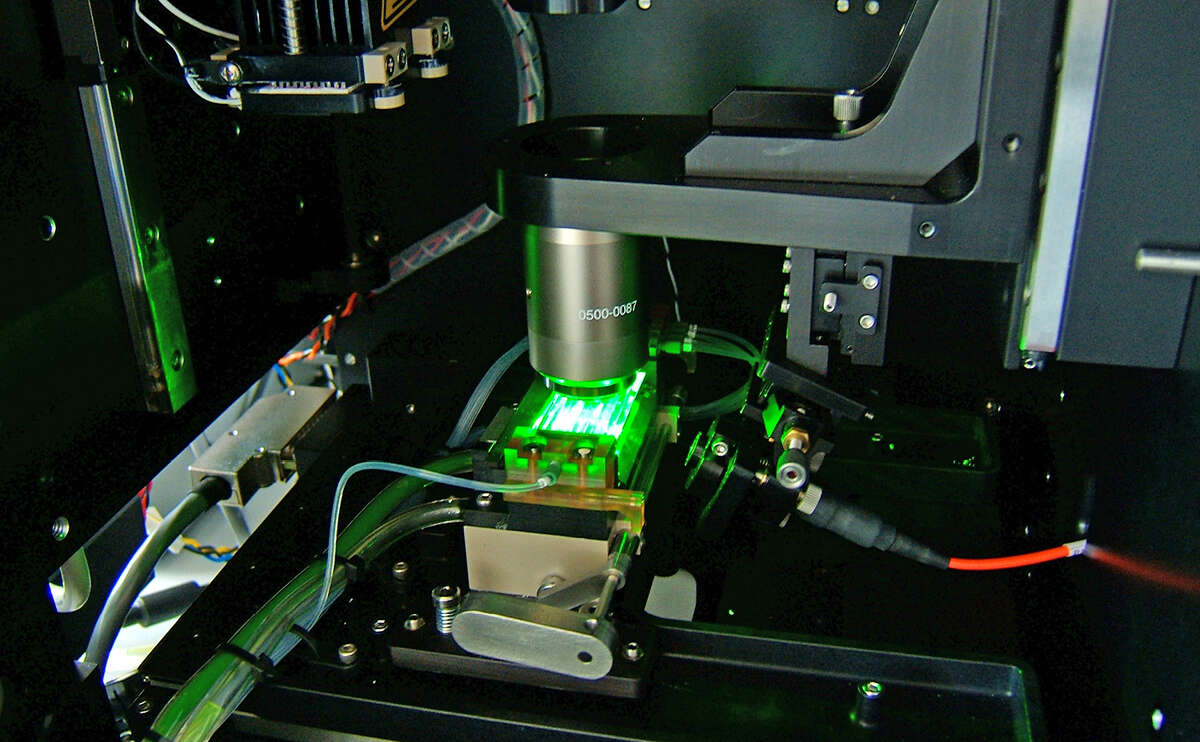Main Content
Genomics Facility Basel
The Genomics Facility Basel (GFB) is a central research and service facility located in the Department of Biosystems Science and Engineering (D-BSSE) of the ETH Zurich in Basel, supported and run jointly by the University of Basel. The GFB team provides technical support for next generation sequencing applications in genomics and epigenomics, including high-throughput data management and analysis.

The interior of a genome analyzer, located in the Genomics Facility at D-BSSE.
Contact: Meet and discuss your projects with Christian Beisel on site at the Biozentrum Kaffi (ground floor) on Wednesdays from 9am to 10am.
→ For further details please visit the GFB website.
In parallel with the human genome sequencing effort, several new technologies have emerged that allow sequencing at unprecedented throughput and low cost. These technologies are generally referred to as "Next Generation Sequencing (NGS)". They have enabled a large diversity of applications from genome resequencing to identify variations within populations to quantification of mRNA and small RNA expression and the abundance of various epigenetic marks.
In order to take advantage of these powerful technologies, scientists from the Department of Biosystems Science and Engineering (D-BSSE), the Department of Biomedicine and the Department of the University of Basel established a NGS unit, which is housed by the D-BSSE. It currently comprises an Illumina GAIIx and a HiSeq2000 sequencing machine as well as storage and a data analysis pipeline.
Chromatin-IP combined with NGS (ChiP-Seq) to identify binding sites of proteins on DNA or specific histone modifications is one type of application frequently making use of the QGF facility. Another comes from the new field of metagenomics that emerged due to the ability to sequence DNA from diverse biological communities in ecosystems or in infectious diseases. Sequencing of hundreds of cancer genomes is yielding an unprecedented wealth of information about how this deadly disease restructures the genome. It has become evident that NGS technologies will revolutionize many areas of biology and medicine.


